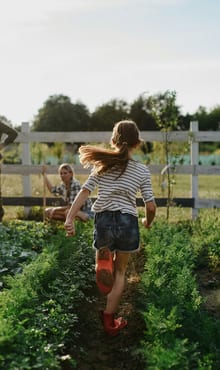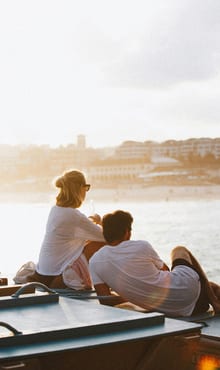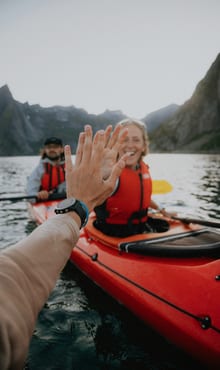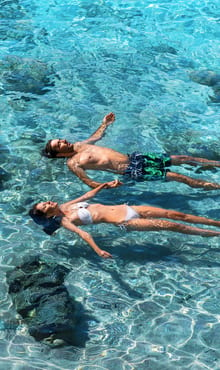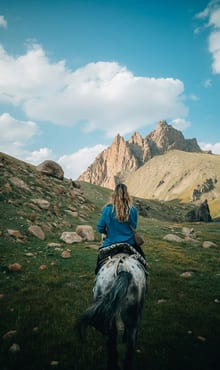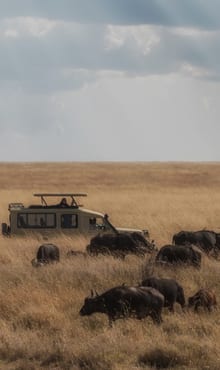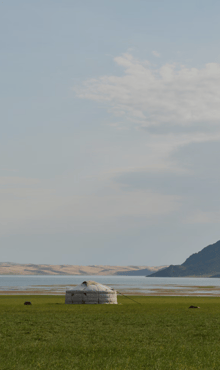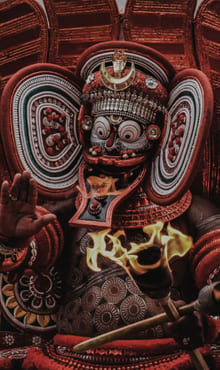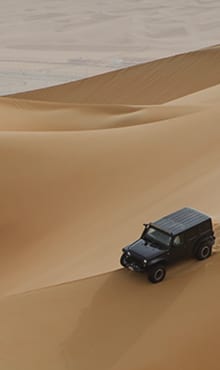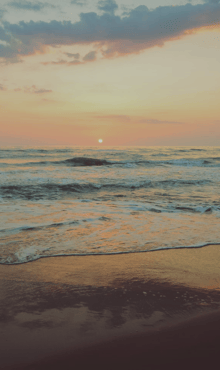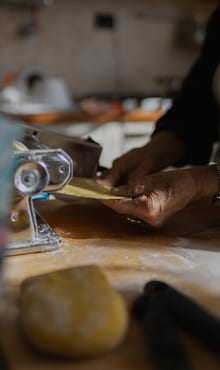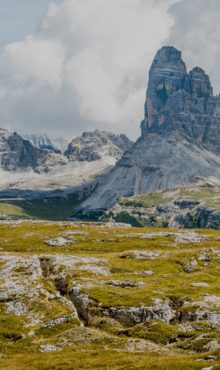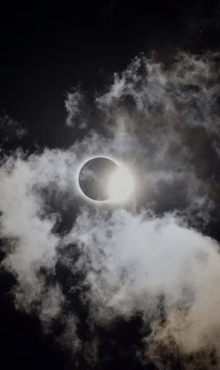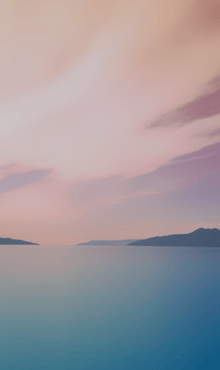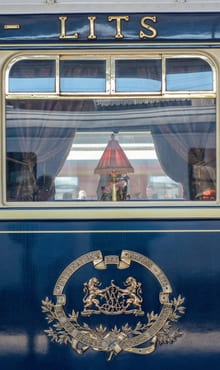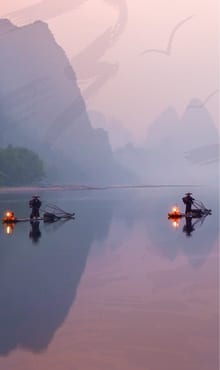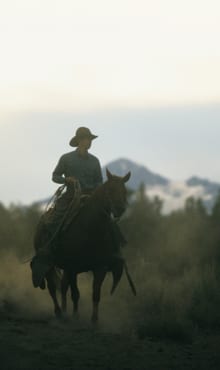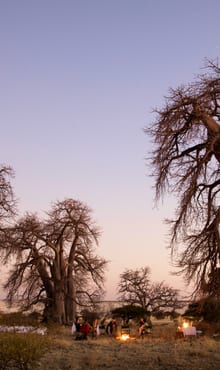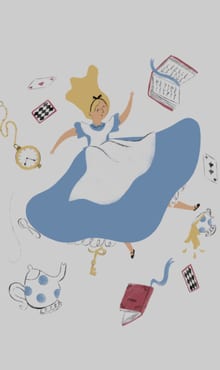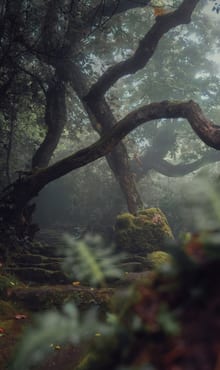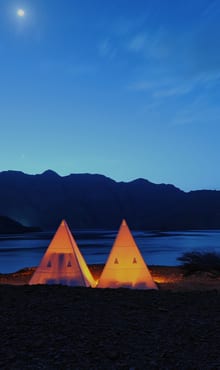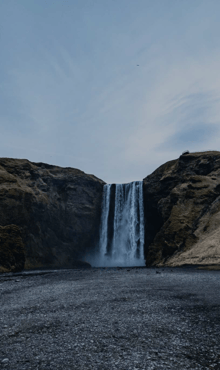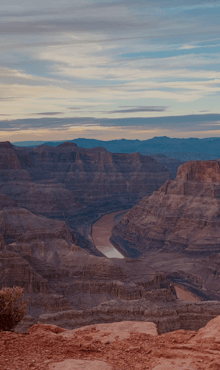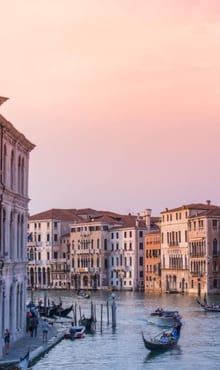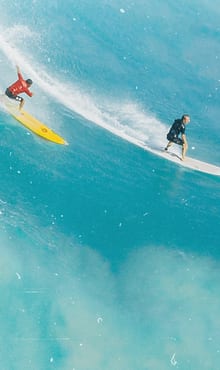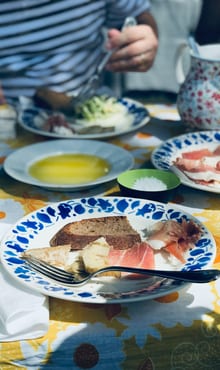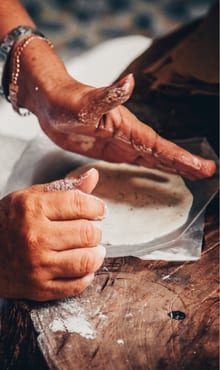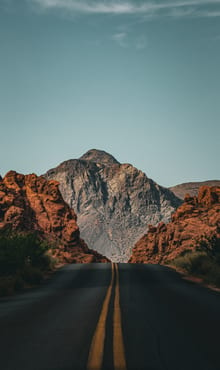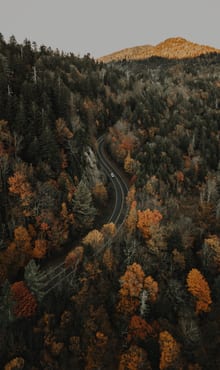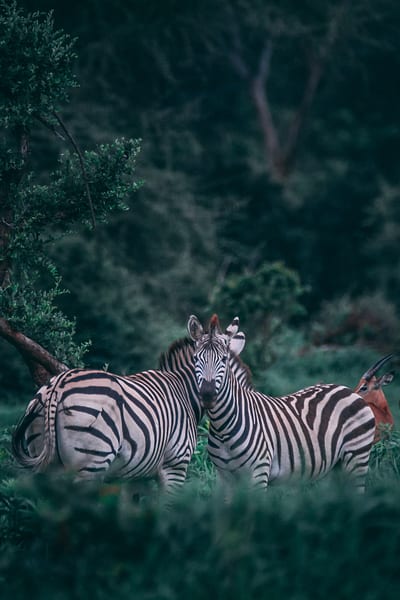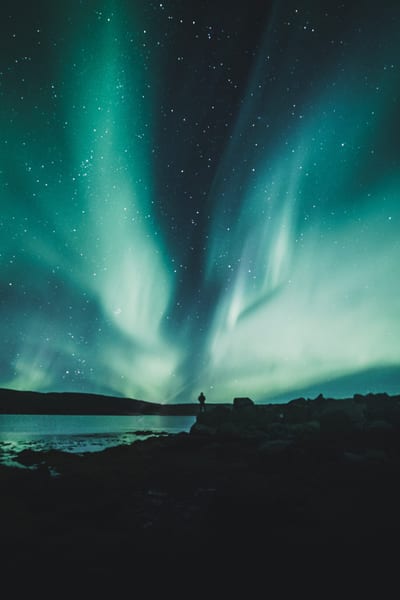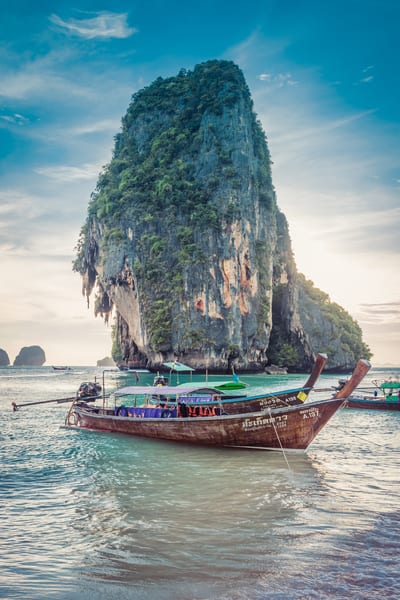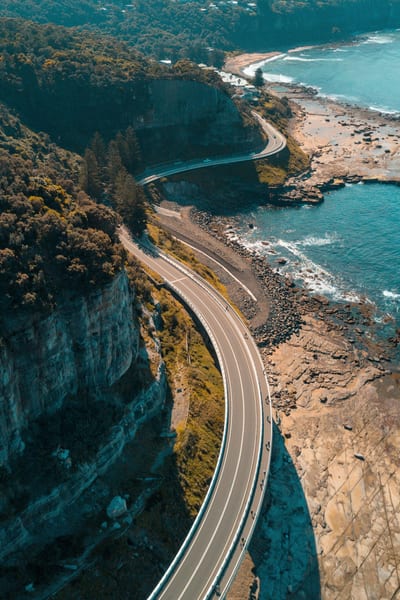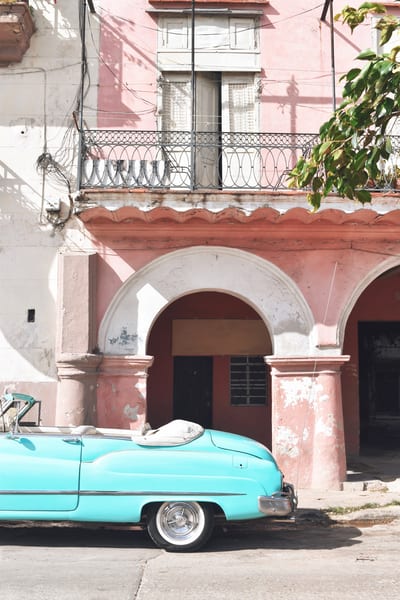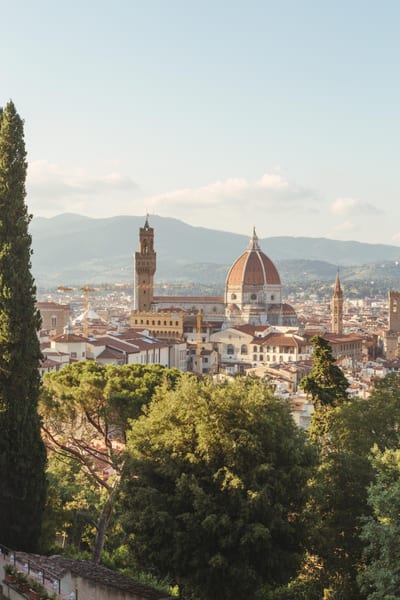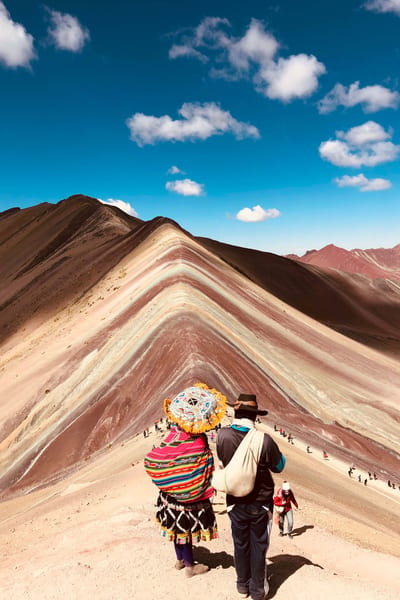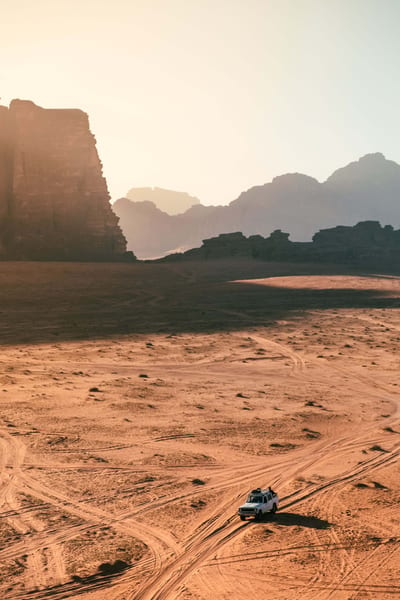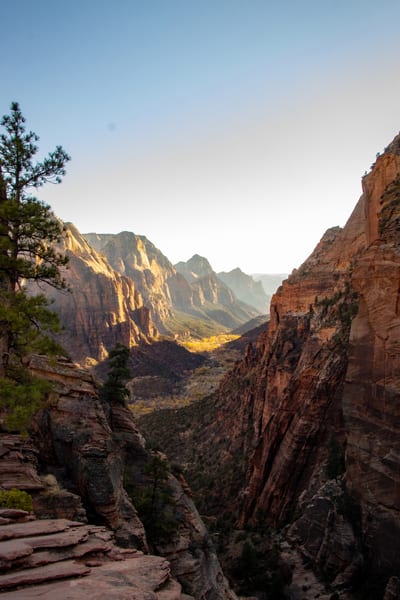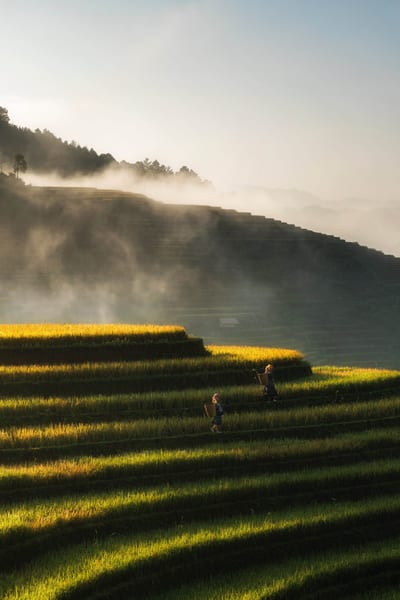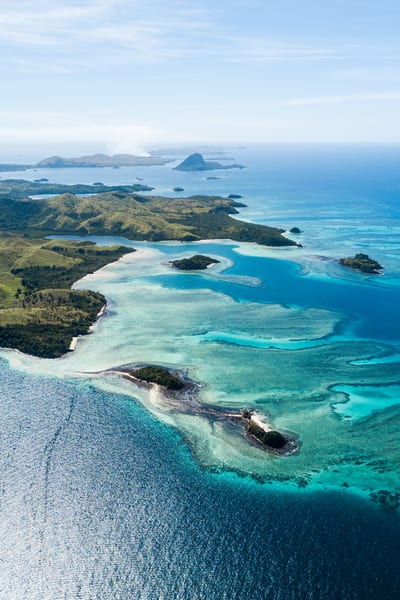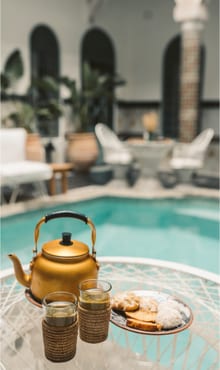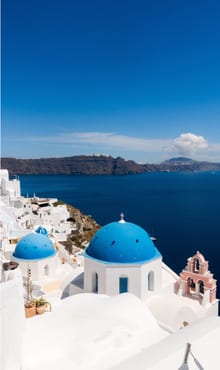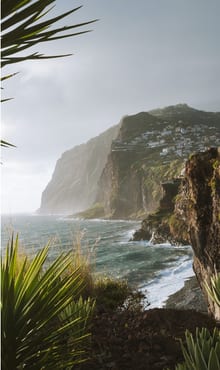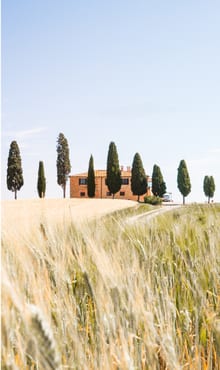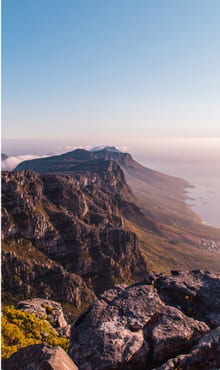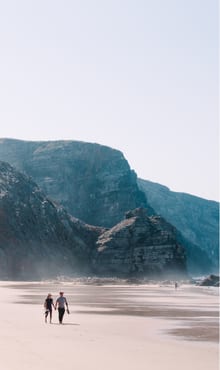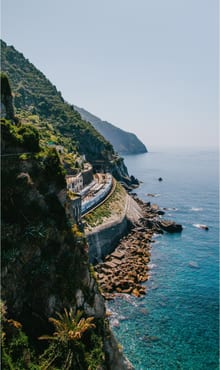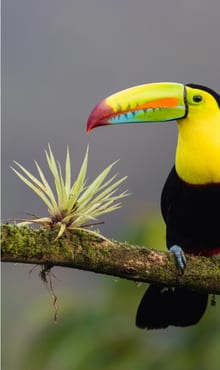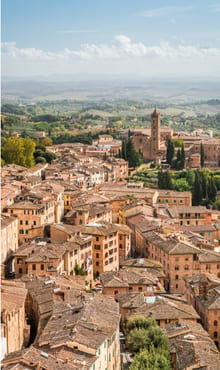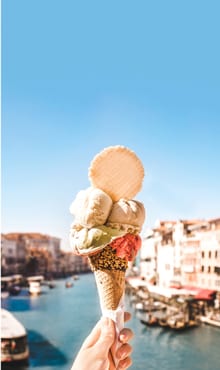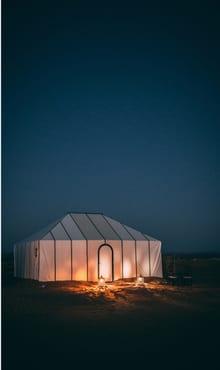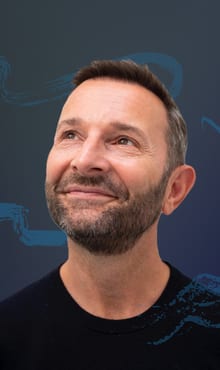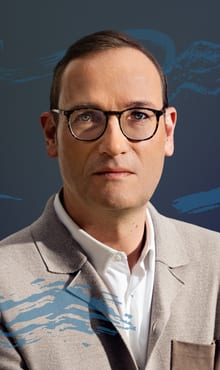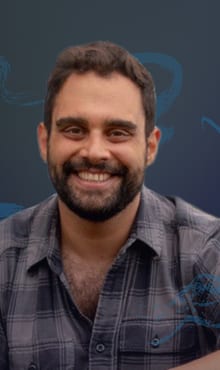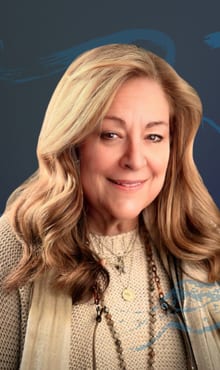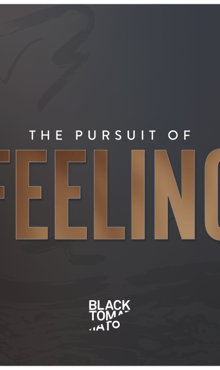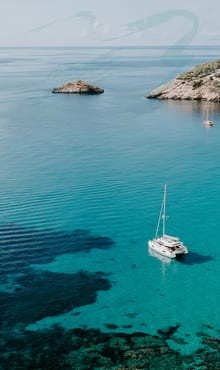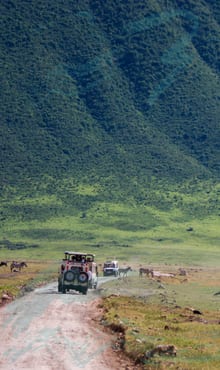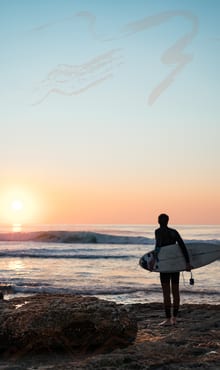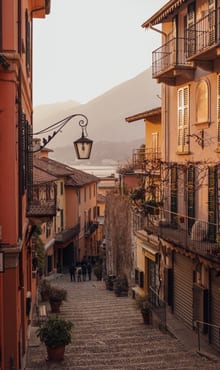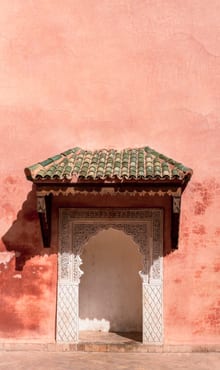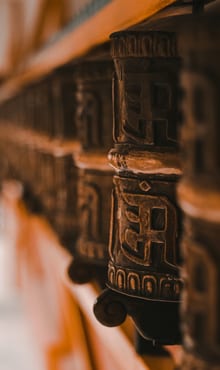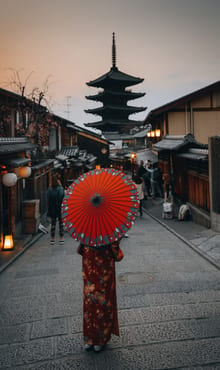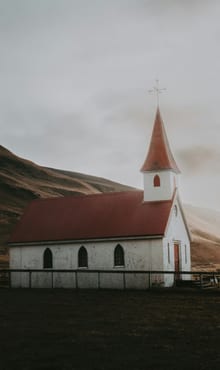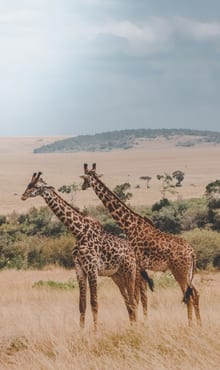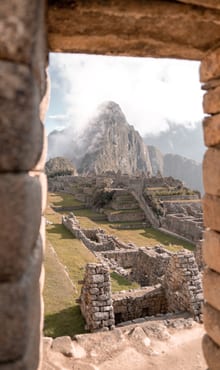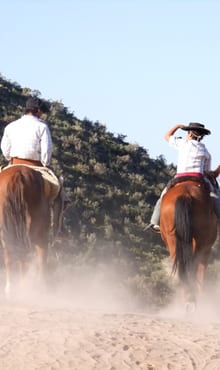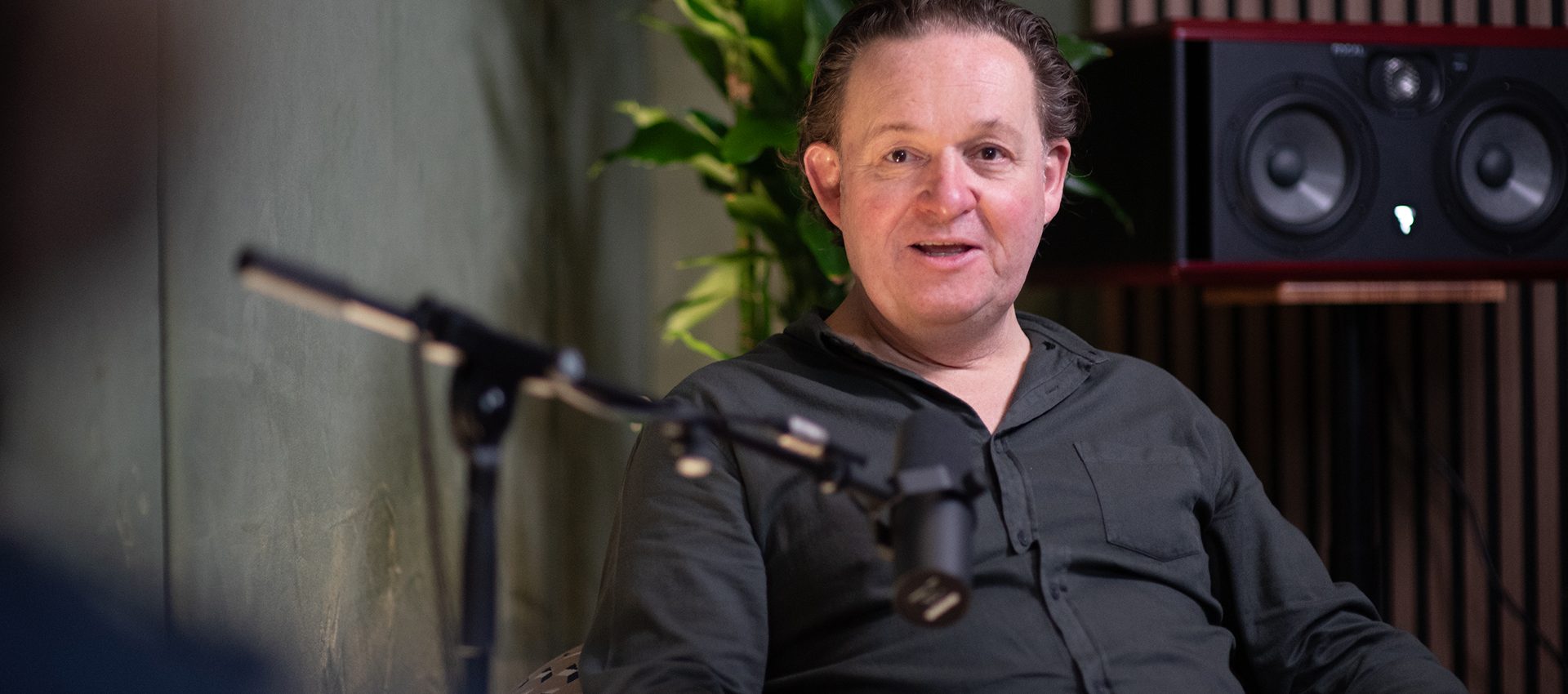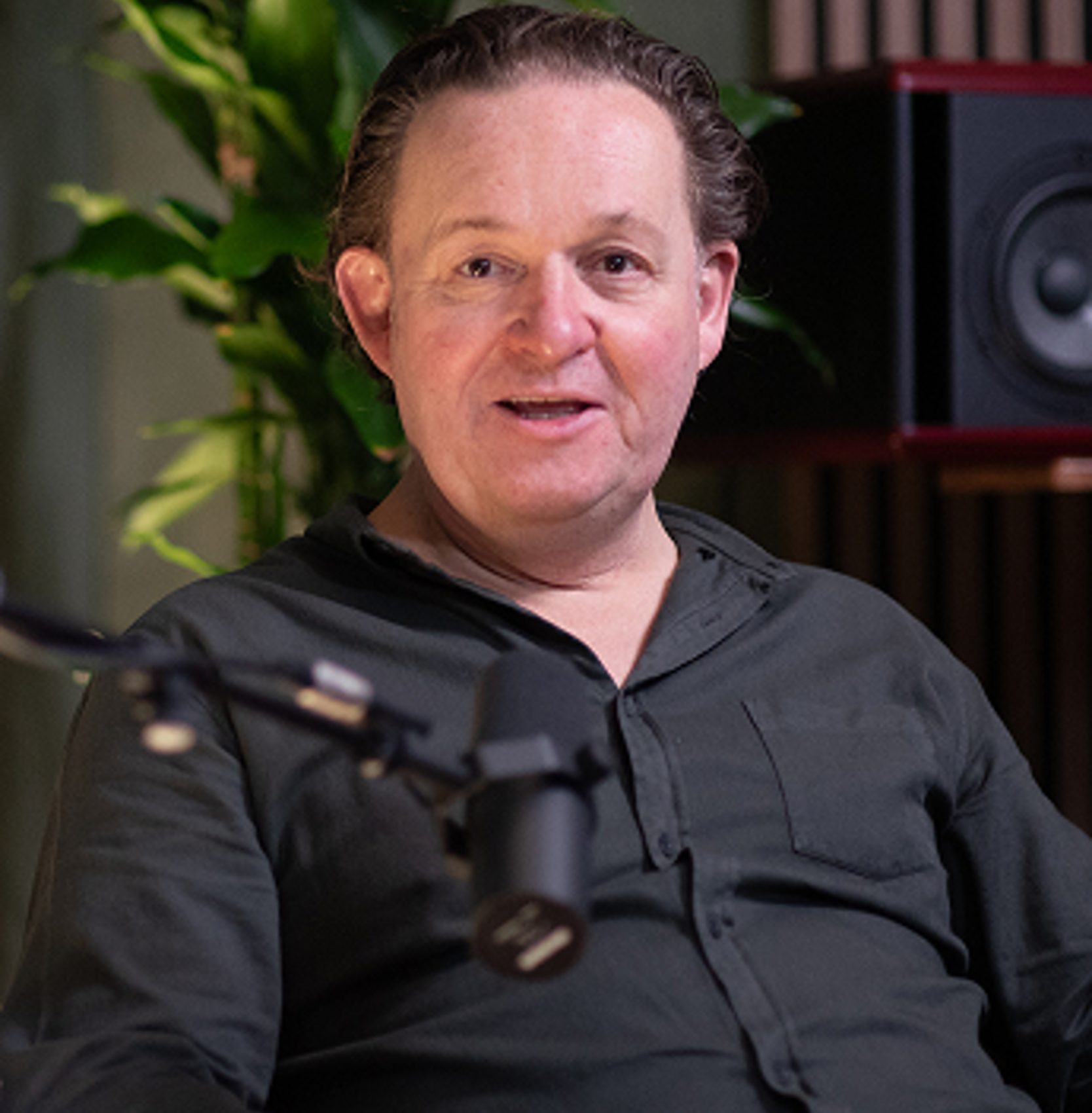Transcript
Owen Vince: 0:01
You’re listening to the Pursuit of Feeling, a podcast by Black Tomato. In this new series, we want to explore not only the world of travel, but the world of emotion and what it ultimately means to feel our way through the world. In each episode, you’ll also get a Rolodex of recommendations from our guests on where to go, what to do and where to stay all around the world. Where to go, what to do and where to stay all around the world.
Tom Marchant: 0:26
Today’s guest is James Lohan, a true pioneer in the world of modern travel and hospitality. Alongside his wife, tamara, he co-founded the trailblazing brand Mr and Mrs Smith, a name that reshaped the way we discover and book boutique hotels around the world. Their mission when they began was simple but radical to specialise in special, and in doing so they created a movement. Together, james and Tamara were awarded MBEs, that’s Member of the Order of the British Empire, a national honour given for outstanding service, in their case, to the travel industry. James is widely regarded as one of the most innovative and disruptive minds in the business. In this episode, he shares how Mr and Mrs Smith began, the philosophy behind its enduring success and how their approach changed the landscape of experiential travel. We talk about restaurants as theatres for food, the emotional pull of Ibiza, and why music and lighting are just as important as design in crafting a hotel’s atmosphere. He also reveals some of his all-time favourite destinations, the kind of places that stay with you long after you leave To settle in.
Tom Marchant: 1:27
This is the Pursuit of Feeling. Delighted to be joined on the Pursuit of Feeling podcast by the one and only Mr James Lohan, founder of one of, if not the most iconic travel brand to come out of the UK in the last 20 years inspiration to the industry, the hospitality industry, and someone who has created something that has left an indelible mark on anyone when it comes to thinking about travel. And great to have James on the podcast today to talk more about the relationship we’re exploring, which is that between travel and emotions. So firstly, james, thank you very much for joining us today.
James Lohan: 2:02
Well, thank you, tom, very kind of you to invite me onto your new show. Yes, thank you very much for joining us today. Well, thank you, tom, very kind of you to invite me onto your new show. Yes, thank you, I’m very excited. Well, it’s good to have you here.
Tom Marchant: 2:07
I think, before we get into the meat of it, just tell us a little bit about yourself and your relationship it’s a big one with travel.
James Lohan: 2:14
Okay, so I got into travel, as you said, about 20 years ago, 21, 22 years ago Before that always been running businesses that I’ve been looking after my peers, I guess. So I started off many years ago DJing, promoting nightclubs, had my own event management company, then went on to own a bar, restaurant and members bar in Clapham called the White House many years ago, and then that then developed into a love for hotels. So really I think I’ve always been very entrepreneurial, always liked working in industries that I understood because it’s my friends and what we wanted to do. I think it’s a really nice way to kind of run businesses when you understand the audience, I guess. And then after that, hotels, as I said, became the fascination.
James Lohan: 2:56
I thought there was a gap in the market and back in those days we were doing guidebooks. Before you know, this is really at the beginning of travel as we used to know it, before online really took off, and so, yeah, guidebooks is where we started and, um, yeah, the business has been kind of growing into a full sort of travel club, if you like, now, which we are today and yeah, so who knows?
James Lohan: 3:18
we’ll see what’s next, but it’s probably going to be like gardening boutique care homes, something like that. As I get older know.
Tom Marchant: 3:23
But you’ll disrupt it again and in terms of just going back to that, from getting into hotels and with those books because I remember them so well and how striking and iconic, and again something that just shook up even the world of guidebooks Do you remember the moment when you sort of landed upon the idea? Was it a gradual progression or was it something that said actually we can see this opportunity.
James Lohan: 3:48
Yeah, upon the idea. Was it a gradual progression or was it something that said, actually we can see this opportunity? Yeah, it was actually, um, a disastrous weekend away with my now wife. It all ended happily ever after. Thankfully she was my girlfriend, I was trying to impress her, taking her away on romantic weekends away and failing miserably, and it was just one of those weekends that was going particularly badly. Uh, that we decided we should do our own hotel guidebook. It was literally there and then, and so we kind of concocted the idea while we were away on this miserable trip to the Lake District and I think everyone’s had the little black book idea we were just the couple that ended up doing it and, I think, doing it slightly differently to everyone else, I guess, and luckily, you know, it sort of caught fire and 20-odd years later it’s still going.
Tom Marchant: 4:19
So, yeah, it’s all been good For you before this journey started. Did it mean lots to you? Growing up, you know, was travel something that you thought I could see myself ending up in this world?
James Lohan: 4:33
No, to be honest with you, I did one of those psychometric tests once for a job, many, many years ago, and it said I was very homely and didn’t like travelling much Ignore that yeah the irony is definitely not lost, but I am quite homely as well, and so, no, I don’t think travel was ever something that I thought I would make a career out of. But I think it’s not necessarily the travel for me.
James Lohan: 4:49
It was very much about the hotels that got me excited about travel Because I think you know what it’s like. Hotels are places where so many incredible occasions can happen Birthdays, anniversaries, you know, first weekends away with your girlfriend, whatever it might be. They’ve always played, I think, a really important part in people’s lives, and there’s something about hotels Like so. At Mr and Mrs Smith we call ourselves the travel club for hotel lovers. You know, we love hotels. There’s something special about them and I think that’s what kind of really drew me to it. Yes, I absolutely love travel now, of course I do. Who doesn’t really?
James Lohan: 5:21
But when I was younger and growing up, I grew up with just my mum. My parents were divorced and we didn’t really have much money. We didn’t really travel that much. You know, my earliest memories were probably going to Cornwall and at Poleseth or something, and I do remember going away with a friend. Then I was probably eight or nine.
James Lohan: 5:36
I was at boarding school as well, so it was quite strict, and so getting that freedom on a beach and going off body surfing on your own or rock pooling or whatever, was the kind of first early memories of a bit of travel and thinking this is, this is fun, this is a bit of freedom, I guess, is the emotion that I was really looking for and then that developed over time and yeah. So really I didn’t start travelling, I would say, in earnest, until I was probably yeah, I’d say late teens, early 20s. Then it started to kick off a bit as I got my first job, started to earn some money, started to want to take girls away to you know, weekends away, and that’s what kind of got me interested in it, I think.
Tom Marchant: 6:14
And with the sort of the start of Mr and Mrs Smith started with the UK right.
James Lohan: 6:18
Yeah.
Tom Marchant: 6:19
And did you see in your vision then, right, you know we’re going to build something here, but we can see how this can become a globally like.
James Lohan: 6:26
Oh, I’d love to say it was a brilliant plan from the onset.
Tom Marchant: 6:28
Do you want?
James Lohan: 6:29
to see. We didn’t even know if we’d do more than one book at that point.
James Lohan: 6:32
I mean we both had proper jobs in those days. I was in PR, tam was working at Honda actually, so she was marketing there and doing analytics and deciding what colours Hondas should come out of the factory and how many they need of each colour and all sorts of things. So she’s very operational, very analytical, very technical, whereas I was always thinking where’s the gap, what’s not going right, what’s not good. And I think when we started it we thought that we’d sell the idea to a publisher and, just, you know, go back to our day jobs, and we had really no idea that it would develop into into a full service travel club. I think all we were bothered about at that point was getting the book done and getting on the shelves. That was the first mission and let’s see how it goes from there. You know, we had no idea that we were lucky enough to create a brand almost overnight, I would say.
James Lohan: 7:17
I mean you know it took a little while, but it was definitely not something that we had, a plan that we hatched. We just thought we were going to publish books for a while and see what happens from there.
Tom Marchant: 7:25
With the hotels themselves and we’re going to get on to kind of the role that hotels play and what’s that emotional hit they give you. How are you defining the hotels you were choosing in those? Early days and did that sort of become a blueprint for? Kind of what you look for in a Smith hotel.
James Lohan: 7:38
Yeah, so we were the first people I think recognize as a couple. Sometimes we wanted to go away for an all singing, all dancing, really glamorous sort of weekend away in Paris, let’s say, and sometimes we had a little country pub in the middle of Wales or Lake District or whatever it wanted, and I think we were the first people to kind of build what we called a collection. We took a nod from our fashion friends that we wanted to build a collection of properties that were all incredibly unique. You know, we have this saying of specializing in special and it doesn’t matter for me I don’t care how many stars, diamonds, how many plates they got hanging on the wall, whether they were the AA, preferably not. You know, I just wasn’t interested in the way that people were judging hotels, because you can win stars, as you know, for things that don’t actually necessarily enhance your experience. So we decided that we could put something like Le Manoir Cat Saison next to the Belle and Sken Frith, and they were both completely worthy of its place in our collection. We defined it as boutique rather than luxury, because we wanted to sort of say that yes, we have restaurants with rooms and yes, we do have classic five-star luxury hotels as well, but all of them have something magical and special about them and I can’t necessarily tell you in words what each one is, but every single one will be judged by the experience rather than the facilities. Let’s say so.
James Lohan: 8:51
We were at that beginning of a sort of design revolution in our home.
James Lohan: 8:55
So, you know, our homes are starting to look better than the hotels. To be honest with you, you know, I remember when Babington House first came out, everyone’s mind was absolutely blown and it was the first time, I think, where hotels started thinking about chucking out all their chintzy old sort of decor and trying to be more up to date, like Conran or Ikea or Heels or whatever we were furnishing our homes with. A mix of that trend was starting to go into hotels, and it was only very, very new when we started 21, 22 years ago. Back in those days it was very formal, it was very Michelin, you know, everything was quite chintzy, everything was service, was overbearing, I would say. You know, sometimes people would try and dress me for dinner and make me wear a tie. You know, I only wear a tie at a funeral, and so the whole thing was at odds. I think to what this new audience of boutique and luxury hotel seekers were looking for, and we were just at the beginning of that wave, starting to sort of build a thing.
Tom Marchant: 9:47
I just see so much of that. I think you inspired so many people. I think there was a similar parallel with when we started black tomato, because I think we had this view that so many places or destinations, you know things, were talked about in a very kind of perfunctory, binary way it would say like this is what you can do, or this is what we have, or the language that you describe.
Tom Marchant: 10:04
it would be very uninspiring and it wasn’t how we would talk about places. And it seemed that there was this, you know, maybe archaic or entrenched approach like that’s how you talk about travel, or this is how you set up a hotel and feeding into this thing we’re looking, which is about.
Tom Marchant: 10:21
no one really talked about how these places make you feel and, to your point, earlier like you can have Le Manoir next to an independent pub, but they’re both going to be giving you these amazing feelings which can still feel equally magical but, the way things are being defined wouldn’t allow for you to kind of recognise that?
James Lohan: 10:37
and also a lot of these places were so small you didn’t even know about them. Them, I mean, when we went around the country to curate the first collection, the idea was we’d have 52, one for every weekend of the year. We only found 41. And I was completely crestfallen. Oh my God, my whole concept’s broken. But actually best thing we ever did, we got 41, because that’s how many are good enough and that was it.
James Lohan: 10:56
When you start to find things like I remember going around going, you’d find something like the Trezanton down in Cornwall, which was one of the original boutique hotels before Babington House, and even today it’s a beautiful hotel. And when you find those hidden gems or the witchery up in Edinburgh, you know it was an extraordinary place at the foot of the castle. Or you know there was this fabulous place called the Drunken Duck Inn, which was in the Lake District. You know, no one knew about these places and no one had ever put them all together in one collection. That’s for sure. And I think that’s what made us different. And you know we were the first people to start saying things like here’s a dress code, like this is what you should wear for your evening. You know, dress sassy. So because it’s it’s this kind of vibe and or this one’s a bit more dress up or whatever, or we would talk about the best rooms to book. So we actually looked at every single room which made people go.
Tom Marchant: 11:43
They really have been there and answering the questions that so many people have. Yeah, but could know the answers to what room number?
James Lohan: 11:48
yeah, yeah so. So we really were that insider’s guide and everyone says that, but we really were the people to start, that I would say, and we were very you know the cliche cash, rich time, poor urbanite. I don’t want a massive guidebook on it like, for, you know, was like one of the go-to guys back in those days, but you need a holiday to read the bloody thing, and so we wanted it quick and wanted it fast, and then we wanted to use what we now know as to be tastemakers or influencers.
James Lohan: 12:15
Back then there was no social media. You know we used to send postage stamps and send out flyers and we used to fly like we used to run nightclubs. That’s how we promoted us when we first started. I did fly postering around the West End with giant Do Not Disturb signs with who are Mr and Mrs Smith written on them. You know it was treated like a nightclub promotion the way we kind of created the hype around it.
Tom Marchant: 12:35
I think that’s what’s brilliant, though, as well, isn’t it? Because that’s you can see so clearly that you know your influence and you want to say how you can bring things from other industries into to freshen or shake up.
James Lohan: 12:44
Yeah, yeah, yeah, yeah. When we first went to all the publishers to see if they published the book and we got turned down by all of them, we then thought, ok, this is a problem, because they were all saying, no, it’s an overcrowded marketplace, no one’s going to want this. There’s plenty of luxury guys out there, and they weren’t getting it. You know, everything was luxury, this ultimate, that no one was trying to do something with a personality. And so we thought you know the way that we designed it, where we’d send couples away.
James Lohan: 13:11
The first people to send couples away to do reviews in the old days it was a, in my mind, uh, an elderly, grey-faced hotel inspector on a monday night chewing on his prawn cocktail you know, judging how many stars this place should get, whereas I’m going away with this hot girl at the weekend, getting up to lots of fun and having a really great time, and I want to write a review about that, not what he’s doing on a Monday. And so when we sent away people, we had a really interesting bunch. We’d have restauranteurs, djs, nightclub owners. One nightclub owner went away with his wife and his girlfriend to a little place called the Lugger in Cornwall. That was a review that I won’t forget in a hurry.
Tom Marchant: 13:48
I mean, mean, it was just more fun. It was more hedonistic, it was more, it was just more interesting and it was more kind of almost like reality, and I think that’s what you guys did, and do so brilliantly, because doing that because also that’s the kind of reviews that people want to see, but by also pulling that eclectic, aspirational, desirable group of people into that world, it also just started reflecting on the brand and what you stood for.
Tom Marchant: 14:02
So people saying, yeah, not only are you interested in these places, but people they’re sending because I think you know, I remember that so well. You know these collections of interesting people who being arbiters of taste in their own world exactly you’d say actually I’m interested to get their take on it.
James Lohan: 14:16
And so with that mix, and also then the language, and so much of that language goes to this feeling, and actually, and was was articulating so beautifully, yeah, yeah, how these places would make you feel well language is so important because, particularly in today’s world, because you know, we had the books where we could be completely unique, whereas now websites look quite similar, you know, because of the way they have to be designed. So, really, the only ownership you can have is your voice, your imagery, your video, and so it’s really important for me that the voice has a point of view. So, you know, I want it to be inspiring, but I also want it to be editorially interesting and fun, and that’s why we have a slightly irreverent tone, because I think connecting people with a bit of humor is a good thing, and I think that’s part of what makes and makes makes the review interesting.
Tom Marchant: 14:59
I wanted it to be a page turner, not a kind of you know something, you prop your door open with it wanted to be something that you really enjoyed reading as well, as well as being useful, you know and that’s has been always, will be so clear with Mr and Mrs Smith going back to like you know you love hotels and that do you approach, say trips, maybe look at like then now, or however, would you be saying, well, I want to go and feel like this, so that’s sort of.
James Lohan: 15:25
I think the feeling is super important and I think there’s no question, whether it’s a romantic trip or a family trip or a business trip, you want to have a different feeling, a different outcome, and that requires a different state, a different mindset. And yeah, for sure, I think, every single trip that we plan, I’m thinking how do I want to feel on that trip? I definitely have that. I think it’s probably more subconsciously rather than consciously going. I want to feel romantic, but I know that if I am planning that, okay, so what are we going to do to make that work? Well, we’ve got to pick the right hotel on the right destination, of course, and then it’s all the other thoughts that go within that. So, yeah, I definitely we do plan through emotions, I think for sure.
Tom Marchant: 16:05
I think that’s that’s true, and we’ve always found that it’s almost, like you say, so often the subconscious, but sometimes it’s just connecting the dots and making people realise that those subconscious thoughts can actually parlay into something that you can actually book on that For sure.
Tom Marchant: 16:20
You’ve spoken I mean we talked a little bit at the start in interviews you’ve talked about the sensory emotions tied to the idea of home right. In interviews you’ve talked about like this sort of the sensory emotions tied to the idea of home right and the familial. Is that something that when you travel or when you’re looking at hotels, you’re looking to replicate people to feel the way? Or are you looking to find the juxtaposition between? Like no, if you’re going to go and do something, it needs to feel very different, or?
James Lohan: 16:41
yeah it’s. It’s a difficult one because you know home is kind of your anchor is. It’s the place you go back to, you love it, you’re familiar with it, everything’s effortless, everything is. But when we travel there’s a shock. You’re culturally shocked, hopefully. Your emotions are heightened because you don’t really know what to expect. You may have read a bit about it and whatever, but until you’re there you can’t really get that feeling. I definitely, when I’m going away, want it to be better than my home. So I want to be surprised and I want you know that whole kind of cliche, surprise and delight kind of thing I do want that.
James Lohan: 17:15
I want something that’s gonna stir my emotions, is going to inspire me, is going to get me, you know, get me thinking differently. I think is what I’m looking for from hotels. You know, one of the big trends is, you know, people are going away and learning skills new skills, whether that’s cookery, yoga, whatever it might be.
James Lohan: 17:32
I think there’s something about hotels facilitating new ideas, new inspiration for you, and I really get that from a lot of our hoteliers because most of them are independents. They’ve all been conjured up by some, you know, crazy personal couple and I love that because they’re thinking outside the box, as do all entrepreneurs and hotels. Can you know they can. They keep surprising me and that’s what I love about it.
James Lohan: 17:56
Like just when I think I’ve seen everything and I’ve been to a few, I’m like, oh my god, that that was, that was something special. Oh my god, that’s clever, you clever bugger. That’s really cool.
Tom Marchant: 18:05
I like that and I think also just the influence of mr mr smith and the boutique that’s clearly had a big influence on the offerings that hotel owners have been putting out there yeah, people have been concepting, because you’re kind of almost like you made a market in a way, yeah, or clarified a mark, I think we’ve helped it for sure.
James Lohan: 18:21
So you know, we all have our company purposes now, as I’m sure you do, as well, tom I’ll test you on yours in a minute.
James Lohan: 18:26
So ours is shaping the future of travelling together is what we try to think about. So what does that look like and how can we influence that? And there’s no question, when I look back, that we, I think, have influenced the style in hotels not us personally, but by representing the hotels that we curate is informing other hoteliers and wannabe hoteliers of how things could or should look. You know, there is a language there and I think that we’ve helped with that, and I think we’ve also helped with explaining the type of service people want and the kind of experience they want and what really matters in a hotel. And you know what really matters is. You know the comfort of the bed. You know the quality of the sheets, the products in the bathroom. How cool is the minib? The sheets, the products in the bathroom, how cool is the mini bar? Can the barman mix me a bloody good martini? These are important things. I don’t go around checking for dirt with white gloves. I assume that’s already done.
James Lohan: 19:16
I’m looking at what’s going on here. And what are you going to do with my special free time? To make something really memorable? And you know, kodak nailed it. It’s all about memories, it’s all about making those memories. But I think it goes deeper than that now and I think we’re starting to become more demanding of these hotels, because there was a time when, frankly, style won over substance and people would just put up some Osborne little wallpaper, bung a bowl of apples on the reception desk and call them a boutique hotel. And it needs to be way more than that Now. Style is almost like a tick box If you’re not stylish, you’re not even in the game. So what are you going to do now and where are you going to take me and what are you going to offer me and how are you going to enlighten me?
James Lohan: 19:54
And I think that’s what we’re looking for now.
Tom Marchant: 19:56
I think that’s great.
James Lohan: 20:04
Yeah, client expectations just keep increasing and elevates the whole industry, which is what I like about it. Anything that is at the forefront should lift everything, and I think that’s really important because you know our time off is too important to mess up is the way I look at it.
Tom Marchant: 20:18
That’s the thing Like you never want to be coming back for a break with regret.
James Lohan: 20:21
Yeah, yeah, yeah, because yeah we’d see that.
Tom Marchant: 20:23
Yeah, people come back and yeah well, we saw that’s one of the reasons you start the business, you come back and then you’re staring down the barrel of six months worth of work again.
Tom Marchant: 20:30
Yeah, I just didn’t get the most out of that and looking at sort of your and smith’s journey so as you came out the uk and just looking at going further afield and when you started expanding into, you know other countries and looking at that, what was the kind of driver for where you’re looking for properties and what was important in those places? In terms of you know what they’d be giving were the differences between different countries and kind of the emotional hit that would deliver for people. How did that kind of expansion into other places?
James Lohan: 20:55
I think what’s really interesting is there’s no question there is a movement of boutique hotels globally, and I like to think that someone in new york will look at our curation in new york and go, okay, yeah, they’ve got all my favourites, they’ve got the right hotels. Therefore, they must know what’s going to be good in anywhere else in the in the world, you know. So I think there is a language going back to that, of starts with, curation is the most important thing, and then, of course, it’s how does that curation fit into their locales? So I’m looking for hotels that are embedded in their locations and their local communities, who are really making a difference, who are not just stuck there, they are integrated, they’re part of the fabric of it. You know, I mean, some of the hotels that we work with are running the local schools, or they’re lobbying governments or for sustainability measures or whatever it might be. There is really much more than just to stay in so many places, I would say.
Tom Marchant: 21:46
Interesting on that, James, you said what they need to think about. Now I mean that definitely is something we’ve seen a lot. It feels that there is a greater awareness or understanding from hoteliers that they need to think beyond sort of four walls in terms of what they’re giving.
Tom Marchant: 21:59
And I think also that’s because consumer expectations change from saying look, sometimes it’s nice to go to a hotel and never leave, of course, but the saying look, sometimes it’s nice to go to St Hilton and never leave, of course, but the curiosity that people have is like they want to go to a place that you said has a sense of locale and feel those connections. Yeah, yeah, you must have seen that and that keeps you cruising.
James Lohan: 22:13
Yeah, so many times and so many places that have been surprising over the years. I always remember and it’s one that I’m sure that your listeners will have heard of been or not is um seneva fushi in the maldives. So incredible hotel, very expensive, please save up, it takes a while, but it is actually genuinely worth it. It’s one of those ones where I remember getting there and I was on a curation trip and you know they’re always curation trips slash mini holiday, if I can just sneak in a day off or two, but you’re always going to be, you know, touring the, the hotels and taking notes. You know that never stops. And I remember them saying to me um, on day two they go would you like to come and see our recycling center? I’m like no, I’m all right. Thanks, um, I don’t really need to see where you put your rubbish and stuff, you know, because it was back in the day where we weren’t really thinking about sustainability in the way we are now. This was 15 years ago or whatever it was, I can’t remember and they said we’d really like to show you. So I was like God, it’s hot. Okay, so you’re going to troll me around your recycling centre around the back of the island, anyway, got there, met their employed engineer. They’d employed someone specific to think about. They had this lovely saying of turning waste into wealth. Because if you can turn your waste into wealth, then maybe people won’t just burn the plastic on the islands and they’ll actually start to do things with it. So do things with it, okay. So let’s think about every single element of our stay and what can we do with it. And so I’m like, okay, I’m listening, this sounds interesting.
James Lohan: 23:31
So we had this little sort of welcome speech and he said, right, let me show you this. So the first thing I’m going to show you is that all the charcoal, for example, that we uh use on the barbecues that we cook all the guests food on every night is all coppiced trees that we make in our charcoal maker over there. Great, great are nice. And then we actually use all the dregs from all the candles that light the whole island at night. We pour them into the end bits, the nasty bits, into the egg cartons and we put a little wick in them and we make them to become firelighters. So they’re the firelighters that light the charcoal.
James Lohan: 24:00
We then the polystyrene that we can’t get away from right now that the fish is delivered every day. We can’t get rid of it. So what we do is we put it into the new villa builds and we put it as part of the fabric of the walls for the insulation. And then all the bottles yes, all the coca-cola bottles and every other bottle we’re using. What do we do with those?
James Lohan: 24:17
Well, we’ve got this machine where we chip it into small balls and we put that into our cement mix, and that’s the foundations that we build the villas on. Every single single bit was thought from like, wow, this is mind blowing, like it was next level. And then, the last time I went, they’d even built a glass blowing studio where they’re melting down all the wine bottles and the Bombay Sapphire Blue bottles. And this studio has an artist in residence that they fly in from whichever country, who’s an amazing glass you know sculptor, and he makes glass sculptures out of all their glass and then they sell it to the guests who take it all off the island. I mean, you can’t get a better recycling than that.
Tom Marchant: 24:55
It’s genius it’s also genius. But a like it’s just genius. Be like that, being a kind of yeah, because they’re one of the ogs of this, yes, like so how they’ve shaped and how you’re starting to see so many hotels that previously would nod to it but didn’t take so much time doing it. But I think what’s really interesting as well is that thankfully, it’s increasingly like it matters to the client.
Tom Marchant: 25:14
So it’s almost like it’s not a feeling to feel like you’re guilt free, but it’s a feeling to think like actually I’m having a damage and it almost moves from not just being similar into regenerative, so you’re helping and that we’re seeing that so often come up now saying it’s where travel, whether it’s in hotels, but also people going into certain communities and having experiences provided by people in those communities and I don’t just mean go, but real ones exactly, do something, that even yeah if it wasn’t from them. It’s just a great experience right, yeah, yeah and but but you know then that your dollars are going back into that, and it’s like travel should be a force of good, and that’s what we’re saying.
James Lohan: 25:49
It’s saying, look, we can’t get away from jet fuel at the moment. I hope we do one day, you know and they are making good progress on that, as we know but actually getting into these communities. So fly less and stay longer. That’s the message we’re trying to give. You know, don’t just go to the obvious places, go deeper, go Go into the parts of the land where the communities actually really need you. They want you to visit.
James Lohan: 26:10
It’s really helpful for their lifeline, and I think if people can think like that and the hotels can adopt the sort of Soneva Fushi approach to turning waste into wealth, and the airlines can hopefully start to work their magic with some sort of jet fuel that isn’t going to pollute the world as much as it is now, then it’s a positive thing as well. It really is. So I don’t want people to stop travelling because of that, but I do think we all need to be more mindful and thoughtful about how we travel and where we travel too. So don’t go and stay in hotels that are having air conditioning on their beaches like stop it no yeah, 100.
James Lohan: 26:43
So think about where you’re going spend your money, where it’s going to make the most difference.
Tom Marchant: 26:46
And it’s never been easier to actually understand and find out. Yeah, we have a whole collection.
James Lohan: 26:51
now you can search by the most sustainable hotels in our collection. There’s no excuse now not to support those.
Tom Marchant: 26:56
if that’s what you feel you want to do, I totally agree, talking about places and communities and all that places having an impact. So there’s a hotel, but also just the place itself. You’ve got a longstanding kind of emotional connection to Ibiza.
James Lohan: 27:13
Yes, well, I met my wife there. Is that where you met Samara? Yes, that’s where we met Samara.
Tom Marchant: 27:17
yes, yes, so what is it say about Ibiza, but also generally about a destination? Do you think that can kind of what needs to happen for it to evoke? Yeah, it’s really interesting.
James Lohan: 27:26
I mean, abitha is a special one for us because tam actually lived there till she was 12, so she was born in palmer. They didn’t even have a hospital in those days in abitha. So her mum was an old hippie out there, had a clothes shop, she was a designer and her father ran one of the first hotels so long, long time ago. I can’t even tell you what date that would have been. So when tam and I met by chance, but through a mutual friend, I was DJing actually in Manumissions Bar Bar M in San Antonio there you go that’s how old I am and this girl walked in and I was like, wow, she’s nice. You know, it was kind of love at first sight thing, I think One of those moments. And she had a note from another mutual friend of ours going you should meet James, you guys will get on well. So essentially we both were separate friends and we ended up kind of eloping for the week and hanging out and just kind of meeting up with our friends and the clubs and whatever, and it’s just there’s something special about it, I mean. So Ibiza then became a place where obviously I was running nightclubs and bars and things, so music’s, I think, at the core of it. For me, yeah, music’s always been really important to me personally and it’s very emotive, you know, it’s very emotional, and I can remember the record I was dancing with in pasha in 1997 when we were kind of, you know, flirting across the dance floor. That’s how powerful it was. It was ultra nato, by the way, in case you’re interested, uh, free, and that was just. I remember records in places, and I think abitha.
James Lohan: 28:44
So many destinations have questionable soundtracks, I would say, whereas what I love about Ibiza, apart from you can be in so many different places. Within like a half an hour drive, you could be in a world-class restaurant, or you could be in a fisherman’s restaurant. You could be, you know, going off to Formentera to have, you know, lobster and chips with your feet in the sand, or you could be in Pascha or Pikes. Probably now, as I’m a bit older, there’s this whole thing where do you want? A hidden cove and no one’s there? Or do you want to go and have a really fun, glamorous night out and see some cabaret? Whatever it might be? There’s an energy there and I think there’s also those mythical ley lines apparently that run through the island, a bit like Glastonbury, maybe through the island a bit like Glastonbury. Maybe I’m an old hippie as well at heart.
Tom Marchant: 29:31
Maybe there’s something about that, but I do think music ties it all in a bit for me for some reason. I think music, I think it’s such a good point about music. Sometimes it’s almost like people look back at things and think that was a great experience. It felt brilliant. The natural things you talk about or say, the old school and actually go.
James Lohan: 29:43
It’s more the intangibles that actually create these moments, these things, and actually music is such it’s so important, like lighting is so important, like when you walk down the high street, like why is that restaurant busy and that one isn’t? They serve the same food. Let’s say it’s usually the lighting, it’s the sound, it’s the host, it’s the intangible, it’s the bits you can’t necessarily manufacture.
Tom Marchant: 30:04
I was talking about it with someone else. There’s a place set up in southern Spain up on the mountainside, and it was in this old sort of like. I think it was like an olive grove and it had these little red lamps hanging from the trees and the DJ was playing just loads of the doors and it was just this combination of things but lighting and music that had such a strong.
James Lohan: 30:24
So powerful it’s the senses, isn’t it?
Tom Marchant: 30:28
it’s what awakens your emotions and everything you’re talking about and luckily for us, companies like yours and I think I said I’m like mine recognize that it’s these things are important when you’re considering what to do so often people come across these things almost like an afterthought oh, that was good because of that, and yeah I’m not saying therefore you have to kind of ring a head and go, what are you playing?
James Lohan: 30:42
but you can get a feel for these things, if you know like, say destiny’s like a beef the way you say.
Tom Marchant: 30:45
You’ve got the breadth, but you know there’s a either philosophy or a general yeah attitude towards that. Yeah, that’s what kind of pulls people to it really is it really?
James Lohan: 30:54
it makes such a difference to me like I can’t tell you how many great restaurants I’ve been to where the soundtrack has been some dreadful pop thing that would, just, you know, stick in my head when I wake up in the middle of the night. I’m not elitist about music at all. I just like good music and I like a variety of music and I like music to be experimental and I like it to contribute to the vibe of a place, and I think you can get it really really right. And the only place in the world that I’ve been to that I can think of off the top of my head consistently, that delivers that, I would say, is Ibiza.
James Lohan: 31:24
I mean, there are other places like Tulum’s very big now, and Miami’s obviously got its own scene, and there’s lots of other scenes and places, but there’s something magical about Ibiza, where you go, what should we do today? All right, but here’s the menu, yeah, and so many places. You’re stuck in one area, like if you’re in Mallorca, which I love as well, you tend to hang be in that area. Ibiza’s a bit like okay, should we go to the north? Should we go to the south? Where are we going to go. What are we going to do?
Tom Marchant: 31:48
and I like that I like that variety and you know you’ll find yeah right level of energy yeah, yeah, for what you want at that moment, yeah the thing about, I think the lighting thing I could talk about for ages because I love dive bars in New York for all the things that come with it, like you know, the characters.
James Lohan: 32:01
Yeah, they’ve got great jukeboxes. Yeah, yeah, it’s the lighting as well.
Tom Marchant: 32:05
I love an English pub, but there’s something about the low lighting maybe it’s the anonymity it brings or the cosiness, and it might be on a cold day in New York, or even in a warm summer’s night. It just feels and I think it’s really simple. I’m not saying it’s easy to do, but it’s not clear to everybody.
James Lohan: 32:20
I genuinely my poor kids, are always like, oh god, dad’s going to ask me to turn the lighting down or the music up or whatever. Or because I do, I’m in places going. Do you mind just dimming this down a bit? You know, and I was always taught, when you’re a restaurateur, you know you spotlight the table, not the people. Yeah, and it’s things like that that people don’t know so many hotels.
James Lohan: 32:39
This is why design is so important with hotels. They don’t understand it. I think often they are architecturally led rather than mood led, and I think it’s probably my events background and understanding how to create that and creating parties and things is about creating vibe, and if you don’t understand that, then your hotel won’t have it and therefore it won’t be a great hotel. So no one’s going to come back going oh, the vibe was really good. There’s something there, though, that you can’t quite put your word. Like Blake’s Hotel. That’s probably one of the original boutique hotels that is rock and roll. It used to be like you just course through its veins. You walk in there, you’re going to feel incredible straight away. You know it’s where Jerry Hall and Mick Jagger were hanging out back in the 80s or whatever it was and it had a sexiness to it.
Tom Marchant: 33:22
You could almost feel it thick in the air like, wow, I’m in something really special here, and that is something that only great hoteliers really understand how to create it’s so true I was going to talk about yeah, I think you’ve answered the question when was about like, what is it about a hotel building’s location that can leave that emotional heft?
James Lohan: 33:41
on you, like you just said and so much is that programming.
Tom Marchant: 33:43
It’s paying attention to those details that some hoteliers think about, like what music’s going to be playing as an afterthought? Or say to someone in their marketing team put a playlist together, yeah, and that can just rip out the soul of what a candlelit turndown is the best turndown you can have.
James Lohan: 33:58
That’s it. Yeah, I don’t. I don’t want rose petals all in my bath, getting them in game crevices, I just want a lovely candlelit turndown and that is a beautiful way to come back after a nice meal or something, and so those are the emotions that will be evoked. If you understand, sound, light, smells, all these things as well, smells are really important as well.
Tom Marchant: 34:15
Smells is massive it’s quite funny there because one question I was going to ask why emotions just feel more heightened when you travel. I suppose day to day and, on the smell side, the reason I make the point is a hotel I love, borg of Nazio down in Bruglia many times it had this really distinctive scent and I remember going there the first time and it was just like vanilla essence and it was just so beautifully done.
Tom Marchant: 34:34
That worked really well and I think I went back it was a year or two ago and they’ve changed the scent and it’s still great, but I was a bit of a fool. I was like but I remember, though, they’d sell these diffus. It just wasn’t quite the same, because you’re in a sort of location, and so it’s not a critique on them but it’s more like there’s a difference between the day-to-day and when you’re away. These things have a it’s like a bigger impact on your sense, because you’re almost opening yourself up to it.
James Lohan: 34:59
You know, when you go into a good spa there’s a smell, isn’t there Like wow, that’s the first thing that hits you, I think.
Tom Marchant: 35:12
And then it’s the is almost. I don’t think this is important in music and lighting, but it would definitely come in number three for me. I just don’t think enough companies whether you’re selling travel or whatever put enough on those things?
James Lohan: 35:17
No, they don’t think about those things enough. No, no, I agree. And then you want the surprising stuff, like the wow things, the things you didn’t expect to come to you. If you can do that, then you’re building a concoction that is, you know, something worthy of what we’d be looking for, for sure do you remember any trips you’ve taken where obviously your, your work is in travel?
Tom Marchant: 35:39
but you know, I think, as you’ve talked about and I’ve seen, it’s like it tends to blend because it’s such a great place to be in, your trips taken or things like, where you it seems to have, like, really influenced either life choices or work, you know that stands out where you’ve been somewhere. Yeah, it’s interesting.
James Lohan: 35:56
I mean, one of the most important ones was actually when we pivoted from being a guidebook into becoming a travel agency ultimately. But that was intel from the hotelier going so how’s it going with the book sales? We were like, yeah, it’s going well, we’re selling lots of books. But we didn’t have any way of really understanding how much business we were bringing to the hotels in those days no-transcript camp or a massage, whatever it might be. And we heard all these stories about people giving cards to other people that hadn’t booked through.
James Lohan: 36:47
Mr, mr smith, in the bars. You know they were going where. Where did you book through? Use my card, you’ll get a bottle of champagne. Take it up to the bar, anyway. So all this thing was happening. There was this sort of buzz going on with it.
James Lohan: 36:58
And then the hotels. I remember we were at this little hotel in Brighton called Blanche House and the owner was quite hard-ass at the first time. We tried to get them on board because we’d never published a book before and we didn’t know if it was going to work. The next time we visited he was like, oh, come in. You know, it’s so lovely to see you. How’s it all going? I was like you’ve changed your tune. This is looking good for us. And we were just there, I think, on a uh, just a weekend away, and he said so um, do you have any idea how well it’s going? Bookings, and we go well. Anecdotally, we’re here, we are starting to deliver some business for people, and so he said well, just so you know, you’re about 50% of my business now and this was six months in and we were like whoa, and when we heard that that was the moment we go, we’ve got to get into the booking side of this, because books are a long way up the hill?
James Lohan: 37:40
Yeah, exactly, and so that was a pivotal moment that changed the business, I would say. But it was obviously Intel-led. But I don’t necessarily have specific things, necessarily have specific things, but I know that every time I’m away and it’s a thing that my team always go god james has been awake and it means I’m going to come back with ideas.
Tom Marchant: 37:55
I’m going to come back with new perspectives, new thoughts, new strategies, new that we need to, we need to focus on this, you know so do you sort of get excited when you’re going away because you, you know that yeah, maybe good and bad, you’re going to be challenged and you’re going to fuel, yeah, I think yeah, it was funny.
James Lohan: 38:09
I had this period during the smith where I got less excited because I seemed to go to all the hotels that were on the cusp. We weren’t sure the curators going, we’re not quite sure if it’s good enough, so I’d go to all the maybe hotels and then I think, as I got a bit older, I was like this is wrong. I should be going to all the like wow hotels, like I need to go and see these places anyway. So I still get excited. It takes more now, I would say, because I’ve seen too much. I’ve been incredibly spoiled over the years, but when I do like, I’m trying to think, um, like forestess.
James Lohan: 38:37
I went to not that long ago an amazing hotel up in the dolomites and I thought I’d seen every restaurant you could possibly see and they’d built a purpose-built restaurant where every seat is a booth, like a little a little booth. It houses you. So it’s a really intimate experience, just for you, and the view is just the Dolomites in front of you. So it’s like you’re in a theatre for food and everyone has the window view. So there isn’t anyone turning the other way and I was like that’s clever Jesus, you’ve built a restaurant that I’d never even dreamed of. And then I’m excited, I’m like that, that’s really inspiring, you know. So when it happens like that, I’m like, wow, come on, I love that I thought of that you.
James Lohan: 39:15
You’ll probably know it up in um in cram montana oh yeah there’s the old, converted ski station yes, yes, I was there in the um in the summer with my family and we, we were staying at the new success that we went up on the flight yeah and it was.
Tom Marchant: 39:30
It’s just a remarkable place.
James Lohan: 39:31
I haven’t been there in the winter or summer, but just seeing A what they’ve done with the building but it’s location and, like the, I don’t know the chutzpah.
Tom Marchant: 39:38
The people doing it say let’s just do something. I think, when you see kind of innovation yeah, yeah, and that’s, that’s rarer.
Tom Marchant: 39:47
I and thought, but when that happens, wow, yeah, I get excited for sure just a couple more, james for your time um, this might be an impossible question because for a person as traveled as you, um, and having seen as many places, but if you’ve got people coming to you and saying I need to go somewhere, extraordinary, and it doesn’t have to be a destination? Are there places, obviously other parts of the world that you just always remember having, yeah, good time or inspiration?
James Lohan: 40:11
so many good places, um, again more recently. Uh, let me have a think about what I’ve been going to. So pasalacqua, uh, late como, classic. Do you know what? As soon as you get to their electric gates and their big grand iron beautiful gates and you’re coming around the back kind of thing, so you don’t get the views to start with, and they open nice and slowly, like you’re just arriving, I’m like, even on the gates, I’m like I love this place, like I don’t want to leave this place.
James Lohan: 40:37
Already, just from a bit like when I was really old and we used to have tapes, you had a technics tape deck. When you push the eject button and it opens slowly, it reminds me of that and it’s a sign of quality. There’s something about electric gates and I was like these gates are freaking awesome and we drove in. I was like wow. Then you get hit by this view and I’m like I am actually gonna hide here because I am not leaving. It’s bloody amazing. And then you go into the whole wow house and you know it’s. It really is that like incredibly glamorous wealthy aunt has house on lake como. Please use it with all her staff and have the most wonderful stay. You know, see you in a week. It’s bloody mind blowing and I love that, so I’m big into views and stuff I do like views Reveal as well.
James Lohan: 41:20
Reveals I love as well. Yeah, I love a reveal, so that’s really cool. I talked a bit about Dolomites, we talked about foresters, which I talk about often owned by some good friends, now called Ushua Casa, up in Bahia, and it’s in this magical little village called Trancozo. So you go to Rio, then fly up there or wherever you might be, and it’s in the middle of nowhere, there’s no cars, it just has something called the quadrado, which is this sort of almost like a Brazilian homemade football pitch kind of surrounded by pastel hue colored bungalows, of which the hotel is integrated within that community, and a little white church at the end, and then it rolls down onto this most gorgeous beach and I just remember turning up there first time, going. Oh my god, I love this place, and people talk about barefoot luxury.
James Lohan: 42:07
This is the one that nails it yeah yeah, it’s owned by, actually, the ex-creative director of Diesel, who was the creative director for 25 years, and his partner, bob. So Wilbert and Bob own it and he’s a freaking genius. I mean the designs he’s done there you know you’re staying in tree houses and all sorts of things that he’s got going on there. It’s just really magical like wow, wow, look what you’ve done and look how you’ve integrated as well into the local community. Going back to that, that’s special.
Tom Marchant: 42:34
I think that, yeah, those arts encapsulate so much what you’ve been saying about the fact that you can have a variety of different places there, but all with an energy and an approach that still projects or gives you, rather like, an amazing feeling to take away, and that integration.
James Lohan: 42:47
Yeah, well, like the one I know we share this one that we both like a deplor farm we love. It’s in iceland, in the back end of iceland, not in the more obvious parts of iceland, and I just remember having a tour around this extraordinary house in sort of you know six deep snow and there’s a little swimming pool with a swim up bar. I’m a sucker for a swim up bar as well.
James Lohan: 43:06
It’s very 80s, but I love it and it’s cocooned in sort of an icy, snowy sort of surrounding and you’re drinking some crazy cocktail sitting in this sort of magical swimming pool, thinking how freaking lucky am I wow this is my job.
Tom Marchant: 43:21
Come on yeah that’s what it’s about. That’s what it’s about. It’s what we aspire to.
James Lohan: 43:24
It’s pretty cool love it.
Tom Marchant: 43:26
And last one I mean we talk about this podcast called the pursuit of feeling. What does that mean to you?
James Lohan: 43:31
I mean, we’ve talked a lot about it but, like you know, when you think about that, Well, feelings, you know everything is driven by feeling, but I think feelings for me now are the sort of feelings that I want to get from my travel is kind of hand in hand with time. You know time, I know it’s cliche, but it is the most precious thing. And that time well spent thing. And that time well spent like I don’t do things now just because like I would when I was younger, like yeah, I’ll try it like. Now I’m more curated, I’m more considered, because I’m 54 and a half years old, tom and um. You know, according to my instagram feed, I’m 66 of the way through my life.
James Lohan: 44:04
Someone told me the other day, so I don’t want to screw up my precious time and whether that’s with um, my wife, my kids, us as a family, or my friends which I’m starting to do more stuff with old friends as the kids get a bit older, now it’s all about spending this precious time in really special places and the feelings that I’m trying to get from that are one of, you know, bonding, connecting camaraderie. You know we’re just trying to create things that when I really am too old to travel and I’m sitting in my rocking chair like I do, you know, we’re just trying to create things that when I really am too old to travel and I’m sitting in my rocking chair like I do, you know what. I did everything I possibly wanted to do and I made the absolute most of my precious time, and that’s what I’m trying to do I love that.
Tom Marchant: 44:43
That’s what I want to do as well, james. That’s been absolutely fantastic. Thank you um great pleasure mate it’s always lovely to see you so inspiring to hear from you and get your take on this world and hear your journey and follow your journey and I think, as someone who is the godfather of putting emotion into the world of travel, we’re in a very academic podcast today, so thank you for your time.
James Lohan: 45:02
No, thank you, mate. Thank you so much. Brilliant Pleasure.
Owen Vince: 45:06
You’ve been listening to the Pursuit of Feeling, a podcast by Black Tomato. If you’ve enjoyed this episode, then please hit the subscribe button. We’ve got a lot more episodes on the way and if you’re feeling inspired by what you’ve heard today, then visit blacktomatocom. We’ll help you to travel where your heart is. Thanks for listening.




